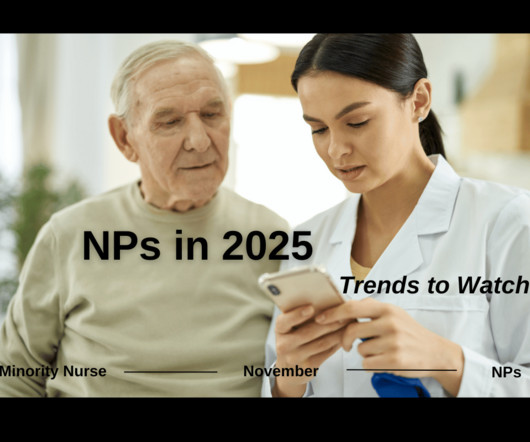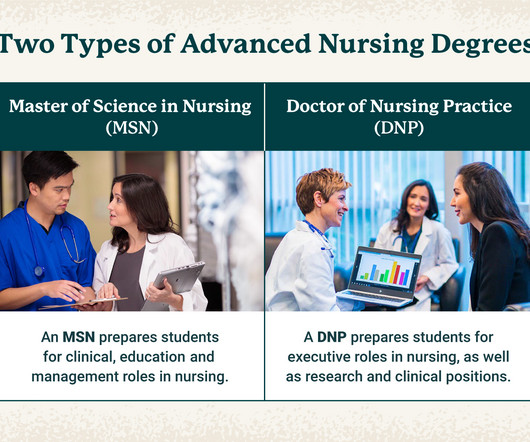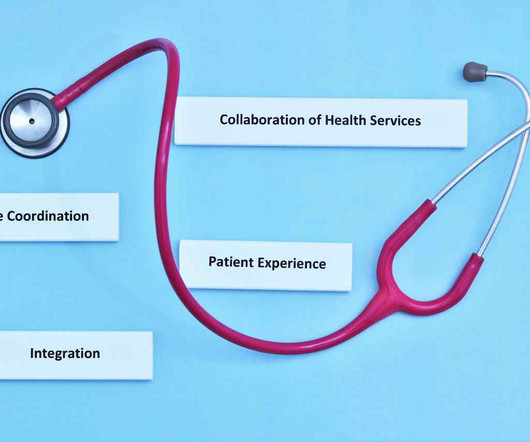Exploring the Dynamic Role of Nurse Practitioners: Understanding Their Scope of Practice
Daily Nurse
NOVEMBER 12, 2024
Nurse practitioners (NPs) are at the forefront of healthcare, blending clinical expertise with a deep commitment to patient care. Join us as we dive into the fascinating realm of nurse practitioners, highlighting their vital contributions to the healthcare system and how they empower patients to take charge of their health!

























Let's personalize your content